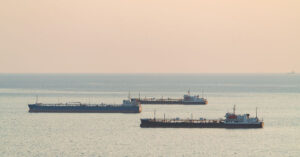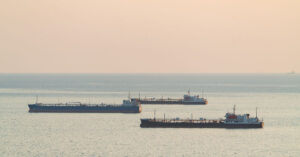
CircleDV Launches CDV Health To Empower Seafarers With Remote Healthcare
October 16, 2025
South Korea’s HMM Orders 12 Eco-Friendly Container Ships In $2.3 Billion Deal
October 16, 2025

Nearly two-thirds of Iran’s National Iranian Tanker Company (NITC) fleet have started transmitting accurate Automatic Identification System (AIS) data for the first time since 2018.
According to TankerTrackers.com, between 20 and 25 of the 39 NITC-flagged tankers are now visible via AIS, a system used worldwide to track vessel locations and movements.
This comes after more than seven years of deliberate AIS manipulation, which had been used to conceal oil exports estimated at 1 to 2 million barrels per day. Historically, the NITC fleet preferred to disable AIS transponders rather than falsify location data, making the recent transparency unusual.
Samir Madani, co-founder of TankerTrackers.com, said that it is rare for the Iranian fleet to transmit accurate AIS data, especially after more than seven years of consistent manipulation. He indicated that this change does not appear to be linked to cyber attacks, pointing to the fleet’s prior behavior of either turning off or spoofing AIS signals.
The timing of the AIS resumption coincided with a visit to the Middle East by US President Donald Trump, shortly after a period of reduced hostilities in the region.
Trump’s administration had implemented a “maximum pressure” campaign targeting Iran’s oil exports, raising questions about whether geopolitical factors influenced the fleet’s decision to resume AIS transmissions.
In recent months, communications within Iran’s merchant fleet have also come under attack. A hacker group called Lab Dookhtegan, or Sewn Lips, claimed responsibility for disrupting communications among vessels in both the NITC fleet and the Islamic Republic of Iran Shipping Lines (IRISL).
The reason for the sudden visibility of the tankers remains unclear. Some analysts believe it may signal a change in operations or efforts to meet global maritime rules. Others see it as a possible response to ongoing sanctions pressure that have made it hard for Iran to export oil openly.
Maritime observers note that this development could have implications for global oil markets and international relations, as previously concealed shipments become more transparent.
Reference: nauticalvoice
Source: Maritime Shipping News


